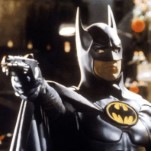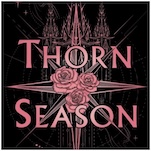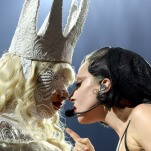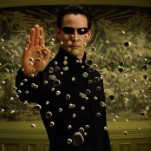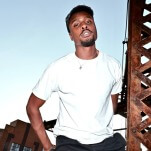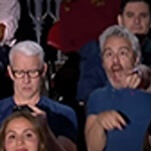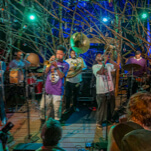Papillon
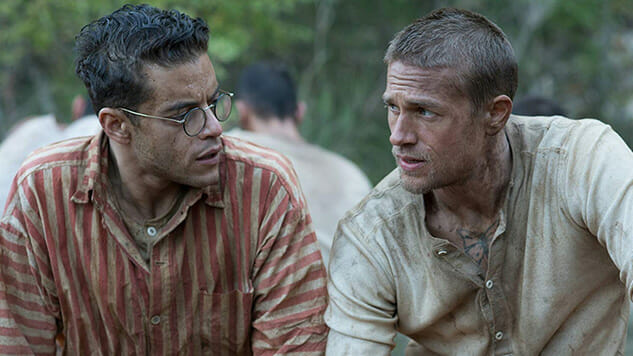
Though ostensibly a remake of Franklin J. Schaffner’s 1973 film, Papillon 2018 concerns itself with only namechecking the Henri Charrière memoirs on which both are based, keeping the Steve McQueen and Dustin Hoffman vehicle at a cognitive distance lest you question why this new one was made at all. Maybe at this point in time, in culture, here at the End of History, a thing—especially a remake or reboot or recontextualization—need not justify its existence without wading pantsless into treacherous terrain regarding the illusion of originality scarring our artistic landscape, but one can’t help but wonder what motivated everyone here, led by director Michael Noer, to want to tell this story anew—other than masochism. Papillon just rolls around in that shit.
Like the best ’90s Oscar bait anyone could dream up, Papillon is about the triumph of the human condition over monolithic oppression, about unchecked power structures left to their own devious devices, about seemingly ordinary nobodies accomplishing extraordinary feats though the universe is hellbent on defeating them. It’s also mostly about suffering—both for the characters on screen and the actors playing those characters—and so it makes sense, at least for a generation of Millennials horny to declare that art released before their time is relevant now more than ever, that the story of a petty Parisian thief sent to a relentlessly miserable prison camp in French Guiana should have something to say about today’s prison industrial complex, or the complicity of world powers in colonialistic suffering, or how there are still method actors willing to lose 35 pounds and look really gross for a role that might win them an award. It’s true that no one’s really making films like this anymore, but it’s also true that everyone pretty much wants to.
-

-

-

-

-

-

-

-

-

-

-

-

-

-

-

-

-

-

-

-

-

-

-

-

-

-

-

-

-

-

-

-

-

-

-

-

-

-

-

-








